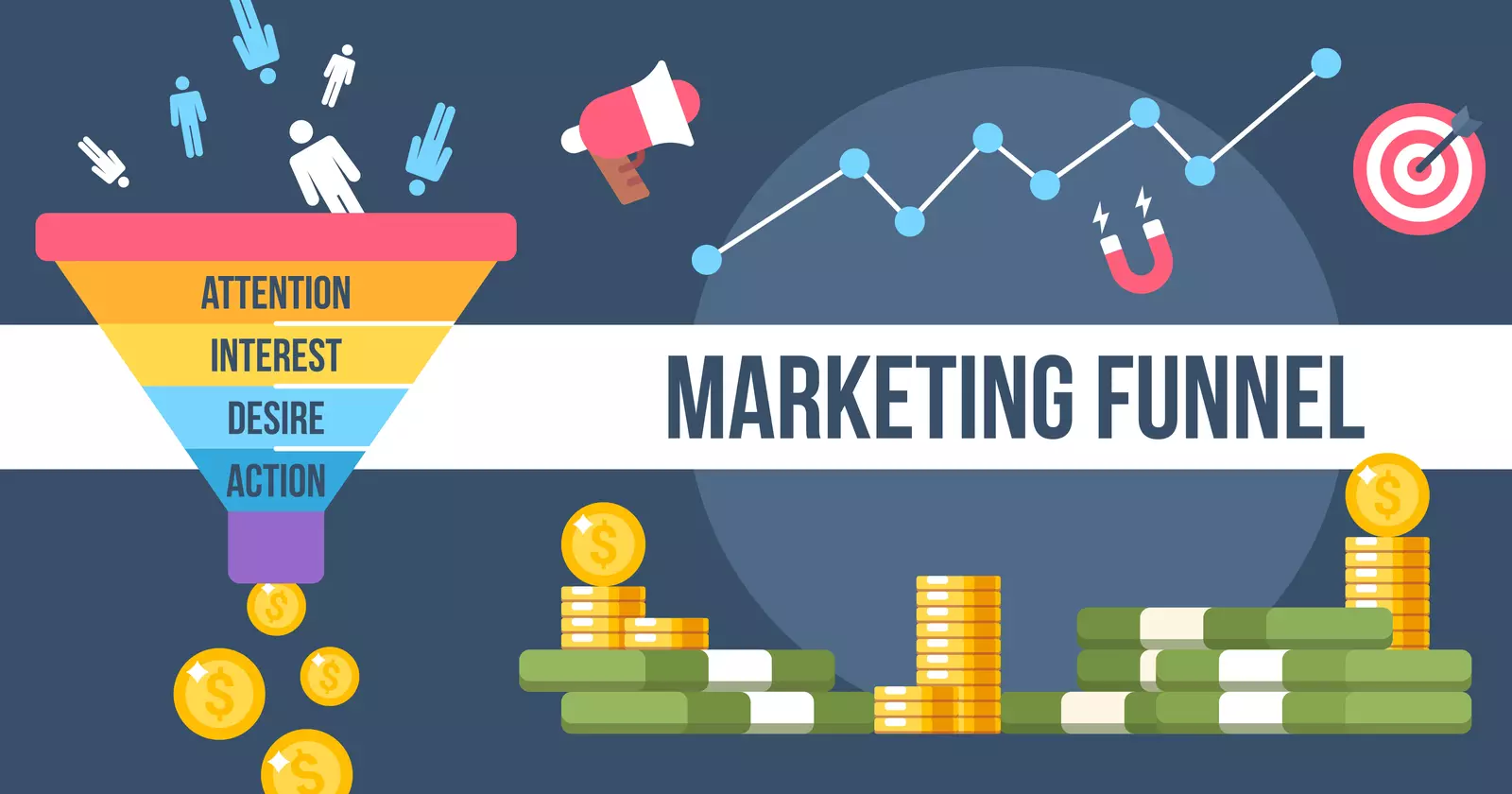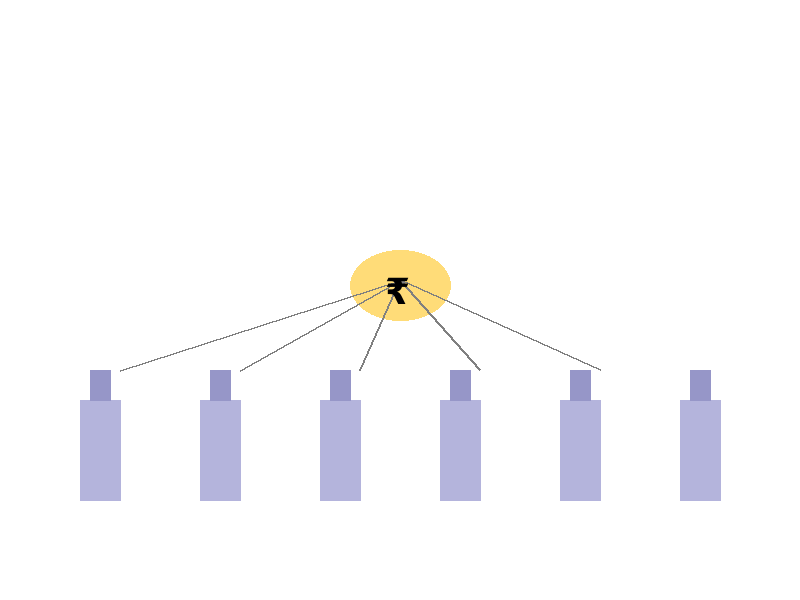5 Types of Marketing Funnels You Must Know
Marketing funnels are essential frameworks for guiding potential customers through their journey from awareness to conversion. Understanding different types of marketing funnels can help tailor strategies to meet various business goals and customer needs. Here are five key types of marketing funnels you should know:
1. Traditional Sales Funnel
Overview: The traditional sales funnel is a linear model that illustrates the stages a customer goes through before making a purchase.
Stages:
- Awareness: Potential customers become aware of your brand or product.
- Interest: They express interest and seek more information.
- Consideration: Customers compare options and evaluate solutions.
- Intent: They show intent to purchase.
- Purchase: The final decision is made, resulting in a sale.
Pros:
- Simple and Easy to Understand: Provides a clear path from awareness to purchase.
- Effective for Direct Sales: Well-suited for businesses with straightforward sales processes.
Cons:
- Linear Approach: May not account for complex customer journeys or non-linear paths.
- Limited Post-Purchase Focus: Often lacks emphasis on customer retention and loyalty.
Example: A consumer sees an ad for a new smartphone (awareness), researches it (interest), compares it with other models (consideration), decides to buy it (intent), and completes the purchase (purchase).

2. Marketing and Sales Funnel
Overview: This funnel integrates both marketing and sales efforts to guide potential customers through a more comprehensive journey.
Stages:
- Awareness: Marketing campaigns generate interest in the brand.
- Lead Generation: Marketing efforts capture contact information of interested prospects.
- Lead Nurturing: Sales and marketing teams provide valuable content and engage leads.
- Conversion: The sales team closes the deal with qualified leads.
Pros:
- Holistic Approach: Combines marketing and sales efforts for a cohesive strategy.
- Lead Nurturing: Focuses on building relationships and educating prospects.
Cons:
- Requires Coordination: Requires alignment between marketing and sales teams.
- Complexity: Can be complex to manage and track.
Example: A visitor downloads an eBook from your website (lead generation), receives follow-up emails with additional resources (lead nurturing), and eventually schedules a demo with a sales representative (conversion).
3. Customer Journey Funnel
Overview: The customer journey funnel focuses on the entire customer experience, from initial contact to post-purchase engagement.
Stages:
- Awareness: Customers become aware of the brand through various channels.
- Consideration: They research and evaluate the brand’s offerings.
- Purchase: The transaction takes place.
- Retention: Efforts are made to retain customers and encourage repeat purchases.
- Advocacy: Satisfied customers become brand advocates, sharing their positive experiences.
Pros:
- Comprehensive View: Considers the entire customer experience, including post-purchase.
- Emphasizes Retention: Focuses on building long-term relationships with customers.
Cons:
- Long-Term Focus: May take longer to see results and require ongoing efforts.
- Resource Intensive: Requires investment in customer service and engagement.
Example: A customer buys a subscription service (purchase), receives excellent customer support (retention), and shares a positive review on social media (advocacy).
4. Content Marketing Funnel
Overview: The content marketing funnel focuses on using valuable content to attract, engage, and convert prospects.
Stages:
- Awareness: Content such as blog posts, videos, and social media updates attract potential customers.
- Engagement: Prospects interact with content, such as downloading guides or attending webinars.
- Conversion: Content drives prospects to take action, such as signing up for a trial or making a purchase.
- Loyalty: Ongoing content nurtures customer loyalty and encourages repeat business.
Pros:
- Value-Driven: Uses valuable content to build trust and authority.
- Engagement Focused: Encourages interaction and engagement with the audience.
Cons:
- Time-Consuming: Requires consistent content creation and distribution.
- Long-Term Results: May take time to see significant results.
Example: A company publishes a blog post about industry trends (awareness), offers a free eBook on the topic (engagement), and leads readers to a product demo (conversion).
5. Lead Generation Funnel
Overview: The lead generation funnel is designed to attract and capture leads through various methods and convert them into customers.
Stages:
- Attract: Use tactics like content marketing, social media, and advertising to attract potential leads.
- Capture: Offer lead magnets such as free trials, whitepapers, or discounts in exchange for contact information.
- Nurture: Engage leads through personalized email campaigns and follow-ups.
- Convert: Turn nurtured leads into paying customers through targeted sales efforts.
Pros:
- Focused on Lead Acquisition: Optimizes efforts to generate and capture leads.
- Effective for Building Lists: Helps in building a list of qualified prospects for future marketing.
Cons:
- May Overlook Existing Customers: Primarily focused on new leads rather than nurturing existing customers.
- Requires Continuous Effort: Needs ongoing effort to attract and nurture leads.
Example: A business runs a webinar (attract), offers a free downloadable guide to attendees (capture), sends follow-up emails with additional resources (nurture), and offers a special discount to webinar participants (convert).

Conclusion
Understanding and utilizing different types of marketing funnels can help tailor your strategies to effectively guide potential customers through their journey. Whether you focus on a traditional sales funnel, a content-driven approach, or a comprehensive customer journey, choosing the right funnel type will enhance your marketing efforts and drive growth.
For expert guidance on developing and optimizing marketing funnels, contact MyHoardings. Our team can help you create effective strategies that align with your business goals and drive success.
MyHoardings
Phone: +91-9953847639
Email: business@myhoardings.com
Website: www.myhoardings.com
Ways to enhance presence over the Internet –
|
Top 5 OTT Platforms in India for Advertising
| Name | Active Users |
|---|---|
| Disney+ Hotstar | 38 Million |
| Netflix | 400 Million |
| SonyLiv | 23 Million |
| MxPlayer | 280 Million |
| Amazon Prime Video | 175 Million |




